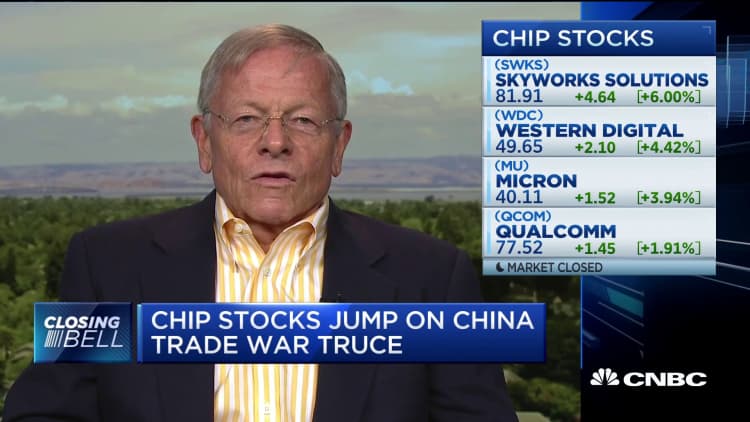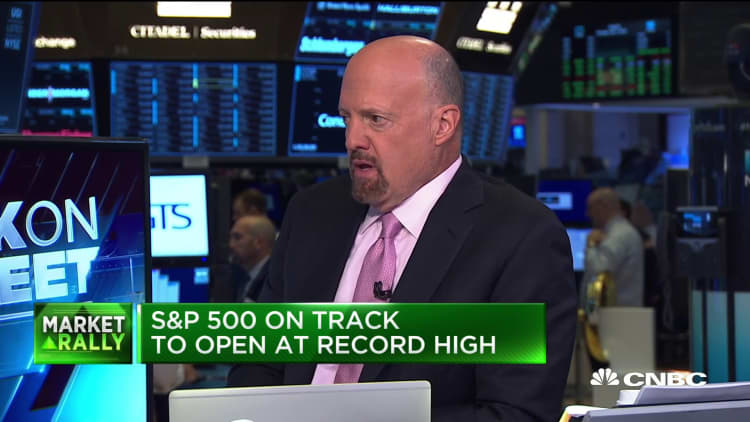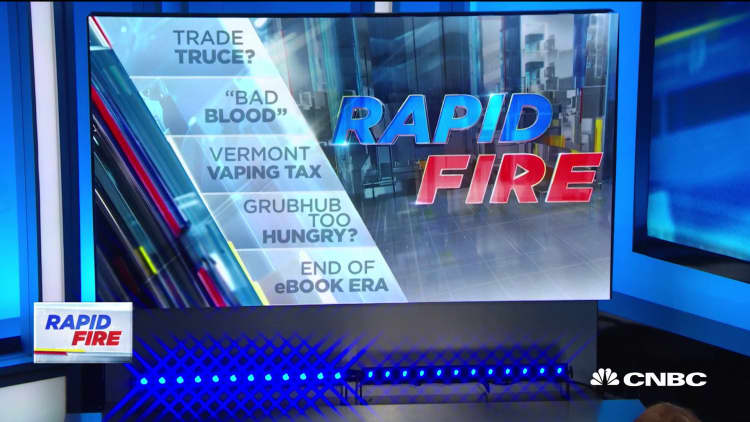President Trump softened his stance on Huawei this weekend, telling participants in the G20 economic summit in Osaka that despite his previous blanket ban on the Chinese hardware maker, U.S. tech companies can go back to selling their components and software to Huawei.
Chip stocks, including Qualcomm and Broadcom, rose sharply Monday morning on the news but leveled off by the afternoon.
The White House and Commerce Department haven't yet clarified whether the policy will affect Huawei's use of Google's Android operating system on many of its mobile devices, or Microsoft's Windows operating system on its computers.

But a Microsoft spokesperson said the company made "an initial evaluation" of the Commerce Department decision on Huawei and will "to continue to offer Microsoft software updates to customers with Huawei devices."
"We're still providing Windows software updates to customers with Huawei laptops," the spokesperson said.
Google did not immediately respond to comment, and a Huawei spokesperson said the company "had no further details at this time."
Huawei will remain on a list of entities banned from certain business activities, Larry Kudlow clarified Sunday, and licenses to sell to the company will be restricted if the U.S. has national security concerns.
A new bargaining chip
Trump also further hinted that trade talks were one avenue through which Huawei may see more restrictions eased in the American marketplace.
The issue of whether Huawei should be handled primarily as a national security issue or an economic bargaining chip continues to cause disagreement in Washington.
Lawmakers like Republican Sen. Marco Rubio and Democratic Sen. Mark Warner have warned the White House not to mix the country's concerns about Huawei with its economic policy. In response to the walk back, Rubio also introduced legislation to solidify the full ban on Huawei.

Members of the intelligence community, who have long argued Huawei's close ties to Beijing make it impossible to allow the company to supply technology infrastructure in the U.S., have also been skeptical of giving the company concessions as part of an economic deal.
But other organizations, including trade and industry groups supportive of the semiconductor industry in the U.S., are continuing to advocate for further relaxing of the rules.
The Semiconductor Industry Association said last week it "remains concerned restrictions on our ability to sell commercial products in major markets will erode the competitiveness of the U.S. semiconductor industry," but showed some optimism at the latest developments.
The disconnect could put Huawei on a very long road toward fuller participation in the U.S. marketplace, a prospect that could drag on even longer than the U.S. trade negotiations with China.
"Trump is trying to coax a deal out of China, and Huawei has become a bargaining chip," said Brian Finch, a public policy and cybersecuirty partner at law firm Pillsbury Winthrop Shaw Pittman.
"Still, most security professionals recognize Huawei's products are problematic so whatever deal is struck — even if it includes security restrictions — will likely be revisited in another administration or challenged by Congress, unless Huawei can affirmatively demonstrate it is not a security threat," said Finch. "That burden is on Huawei, however, and it is a heavy one to carry."
Follow @CNBCtech on Twitter for the latest tech industry news.



